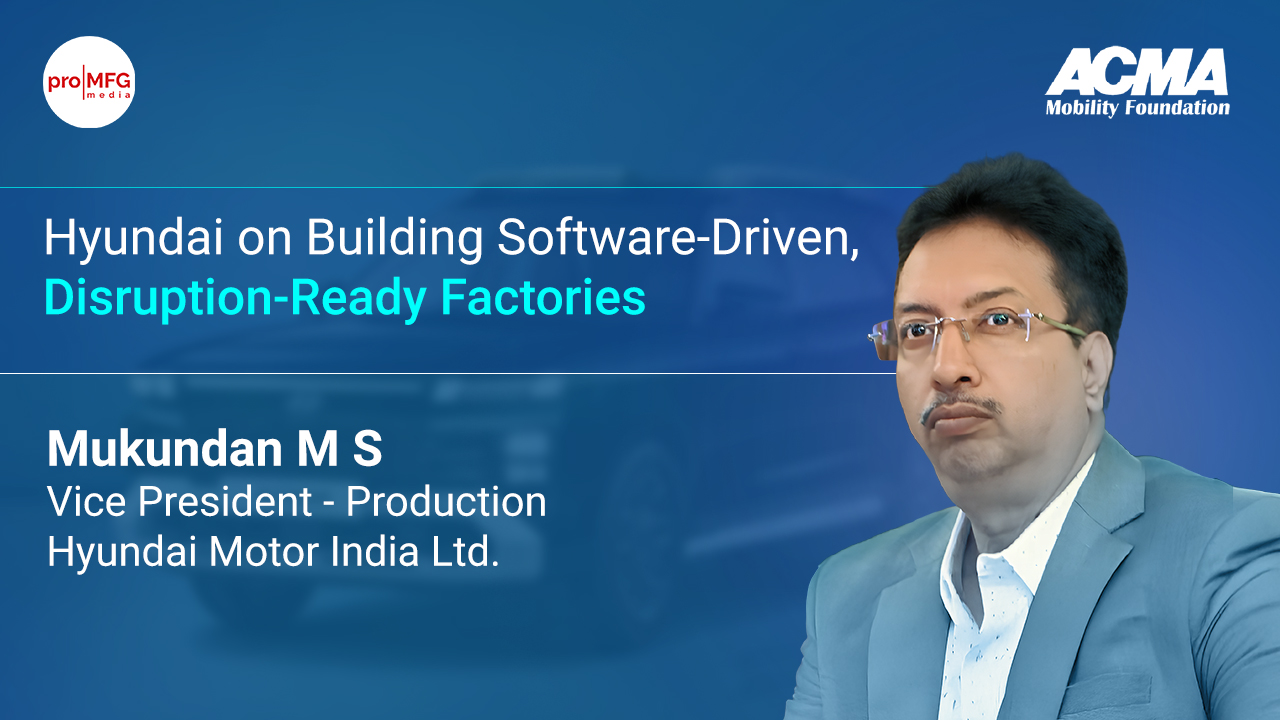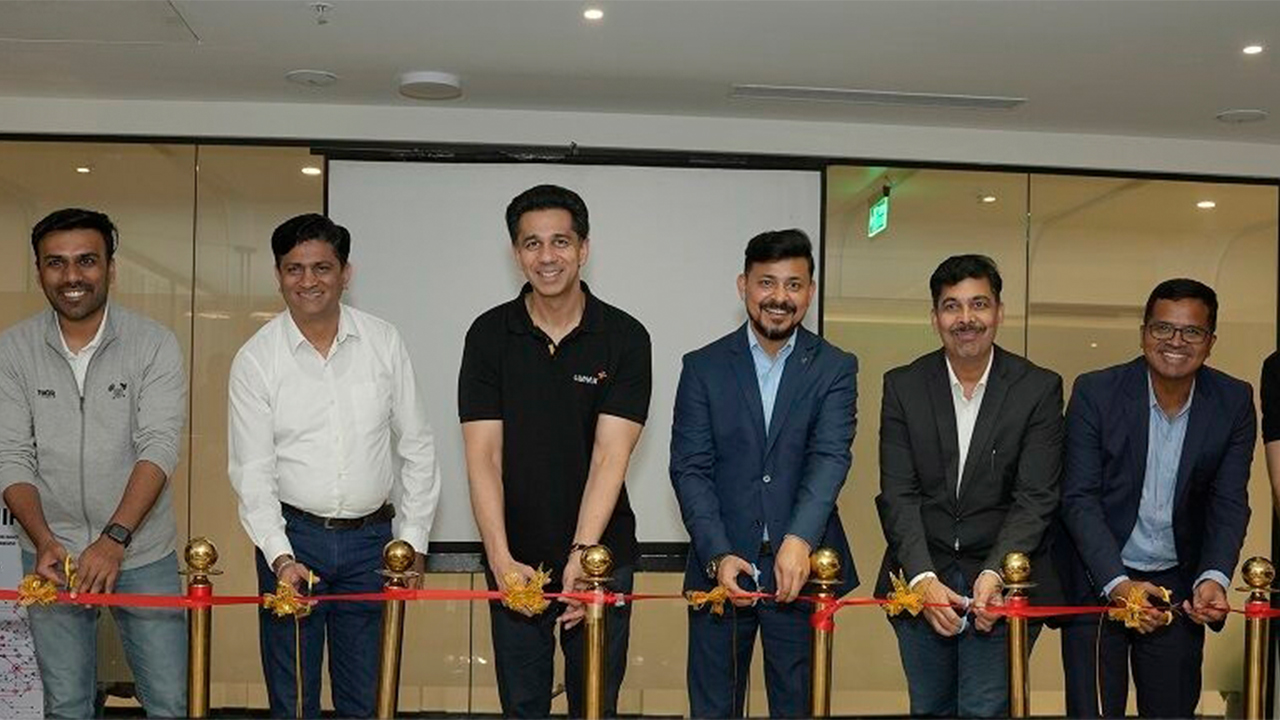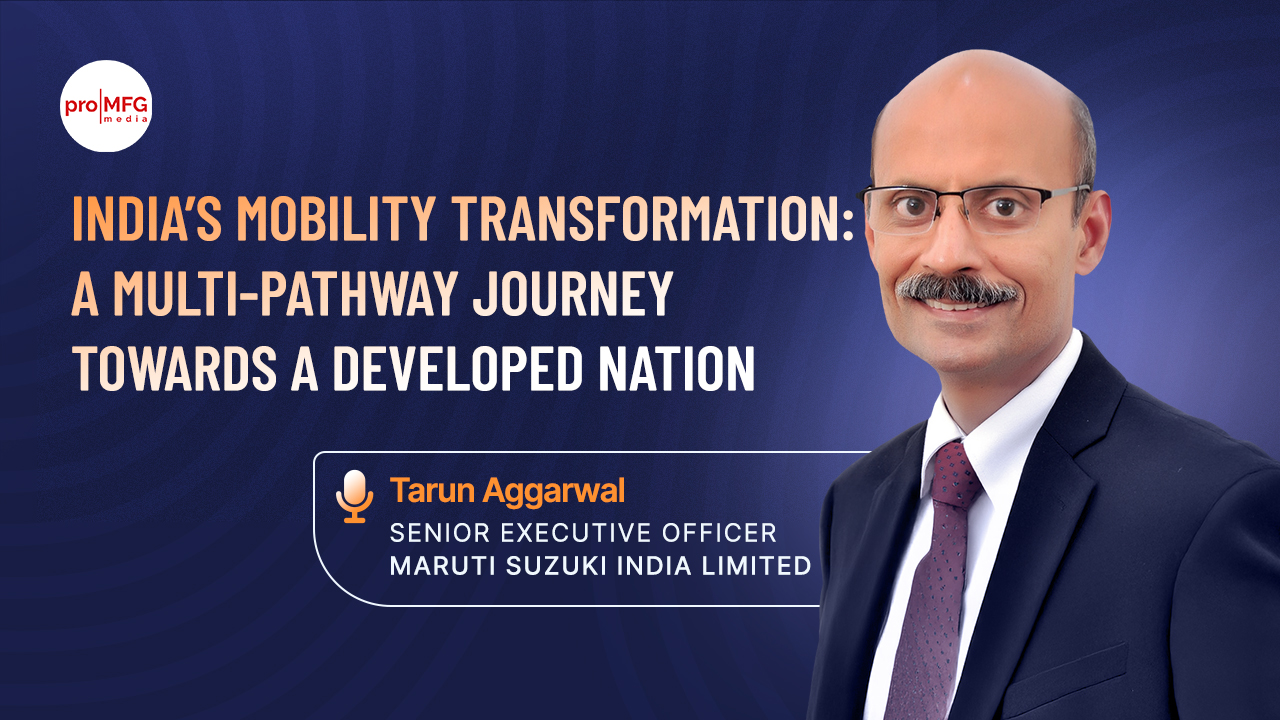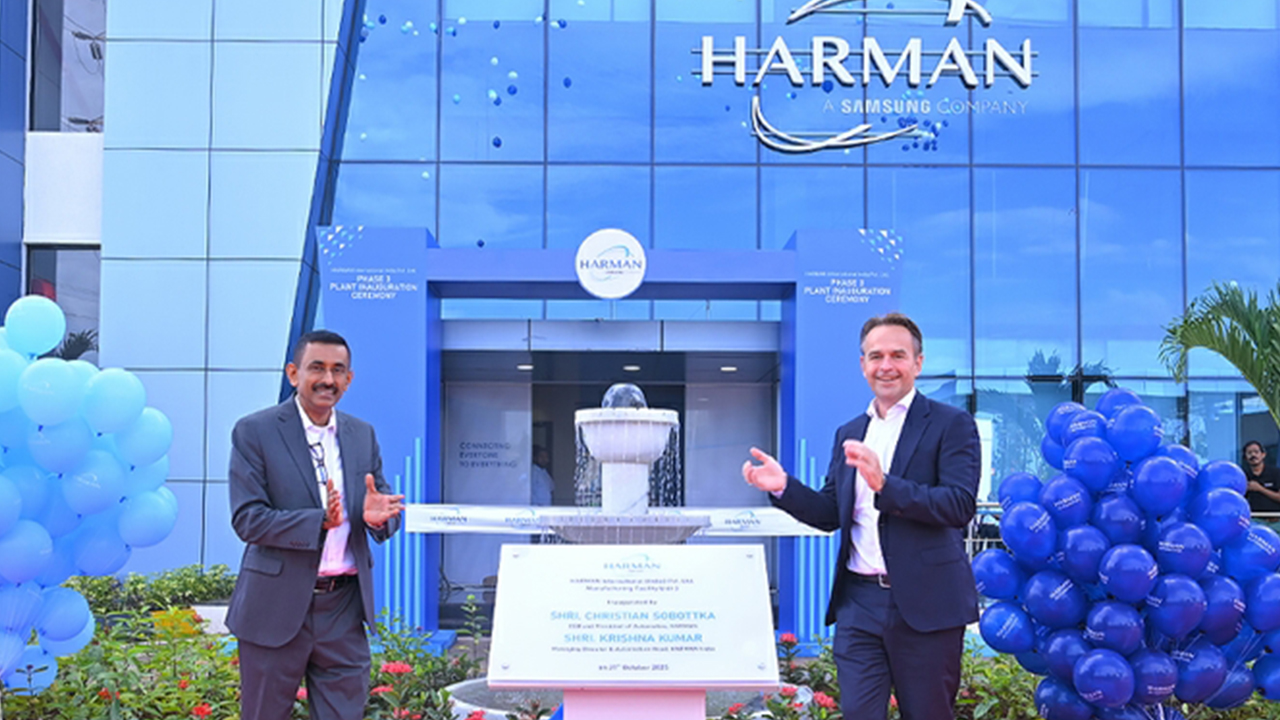Hyundai on Building Software-Driven, Disruption-Ready Factories
#SoftwareDefinedVehicles #SoftwareDrivenFactory #AutomotiveTech #HyundaiIndia #DigitalTransformation #FutureofManufacturing #SmartManufacturing #Industry40“We use robotic vision with distribution cameras operating at 45 frames per second and deep learning to ensure 100% quality in critical operations like welding and sealing,” - Mukundan M. S, Vice President – Production, Hyundai Motor India Ltd

November 2025 : “Disruptions have become a way of life,” remarked Mr. Mukundan M. S, Vice President – Production, Hyundai Motor India Ltd. (HMIL). “What was once episodic has now become continuous. Agility and sustainability are critical to not just overcome disruptions but to turn them into opportunities.”
At Hyundai, this transformation is anchored in a structured digitalization strategy. The company has built a specialized team trained at leading institutions like IIT Chennai, focusing on smart factory initiatives, data analytics, and deep learning. These internal capabilities have enabled Hyundai to deploy over 700 fifth-generation six-axis robots and connect more than 2,000 machines through IoT, driving predictive maintenance and enabling three-shift operations at near-100% efficiency.
On the shopfloor, vision systems and AI-driven quality controls are playing a decisive role. “We use robotic vision with distribution cameras operating at 45 frames per second and deep learning to ensure 100% quality in critical operations like welding and sealing,” Mr. Mukundan explained. Importantly, these solutions are developed indigenously by Hyundai’s own engineers, reflecting the growing technological confidence of Indian manufacturing talent.
Looking ahead, he underscored the strategic shift towards Software-Defined Vehicles (SDVs) and the resulting imperative to build Software-Driven Factories (SDFs). As vehicle architectures evolve, with 85% of vehicle value expected to be electronics and software by 2035, manufacturing systems must keep pace through smarter control layers and digital twins—particularly in warehouse and production planning.
However, Mr. Mukundan was clear that technology alone is not enough. “Cultural change is the major factor,” he emphasized. Hyundai has launched bottom-up initiatives like My Place, My Pride and shop-floor Smart Automation & Innovation Teams to encourage operator-led improvements. “While investments and strategic direction are top-down, the real integration happens bottom-up,” he added.
In closing, he reaffirmed Hyundai’s commitment to safety, sustainability, and indigenous innovation, positioning the company to lead India’s automotive manufacturing transformation in the decade ahead.
These insights were shared during the ACMA Automotive Smart Manufacturing Think Turf 2025 conference, as part of a panel discussion on “Driving Manufacturing Transformation: Strategies for Success.”
NEWSLETTER
TRENDING ON PRO MFG
MORE FROM THE SECTION









